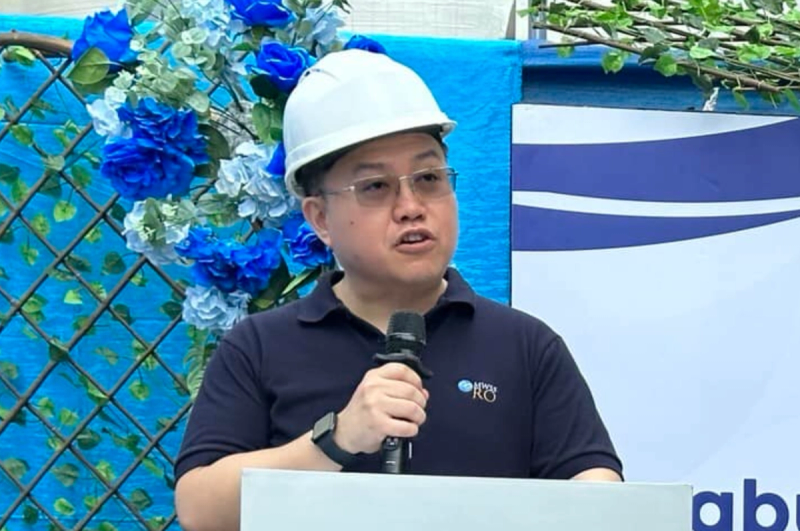Alumni
Atty. Patrick Lester N. Ty '99: Champion of Water Security and Public Service

When Metro Manila faced the threat of running dry, Patrick Lester N. Ty ’99 was at the center of the effort to keep the taps flowing. As the youngest Chief Regulator of the Metropolitan Waterworks and Sewerage System (MWSS), he has made it his mission to ensure that millions have continuous access to clean, safe, and affordable water — a commitment measured not just in pumping capacity or kilometers of pipeline, but in the quiet relief of households that never have to wonder if water will come.
Patrick’s path to public service began in the neighborhoods of Quezon City, where he often walked with his mother, exploring the streets near their home. “It shaped me to always be curious and ready to explore,” he recalls. From his father, a respected figure in the community, he learned the importance of “having a good name and having integrity” — lessons that became the bedrock of his career.
In a close-knit family, reputation outweighed riches. “We value having a good name better than having lots of money,” Patrick says. Watching neighbors seek his father’s counsel planted the seed of public service. “I wanted to be like him. The best way I could think of to achieve this was by becoming a lawyer.”
That decision took him from a Bachelor of Laws at UP (2003) to the Ocampo and Manalo Law Firm — itself an Upsilon institution founded by Carlos Ocampo ’85, managed by Manolito Manalo ’87, and partnered with Juan Victor Valdez ’88. He later served at the UP Institute of Government and Law Reform, the Central Bank Board of Liquidators, and as Deputy Administrator of the Authority of the Freeport Area of Bataan. At 39, he became the youngest Chief Regulator at MWSS.
Patrick admits that pride was once his biggest obstacle. “I had to learn that it’s not important to always be right.” But that humility, combined with his work ethic, became a powerful tool. “Yes, I’ve been underestimated. I proved people wrong by working harder than the rest and thinking outside the box.”
At MWSS, Patrick’s leadership has combined technical oversight with a deep sense of public duty. Under his watch, the regulation of water and wastewater services has been guided by the principles of access, sustainability, and dignity. His policies have helped Metro Manila avoid major water crises, strengthened the rights of consumers, and promoted environmentally sound wastewater systems. “When I saw my hard work in the news… that I contributed to ensuring Metro Manila would not have a water crisis — that’s when I knew I made a difference.”
Some achievements have been policy-level reforms; others, like the installation of 17 refrigerated water fountains across UP campuses and the Philippine General Hospital, speak to his belief in service you can see and feel. “It speaks to his character,” colleagues say. “He does not forget where he came from, and he serves even in the details.”
Through it all, Patrick keeps a simple discipline: “Having a bad day is not an excuse not to get out of bed and go to work.” His personal motto — “The darkest hour is just before dawn” — reminds him to push forward when challenges loom. And when the heart says one thing and the rules another? “Many times… but you move forward and work with what is in front of you.”
Outside work, he unwinds over meals and drinks with friends. He acts quickly when procrastination will make a problem worse. And he takes criticism as part of the job, never taking it personally.
If he could speak to his younger self, he would offer reassurance: “Things will work out for the best. If one door closes, another door will open.” As for how he wants to be remembered by young lawyers and public servants: “As someone who thinks outside the box to find solutions. A doer, someone who gets things done.”
This year, the University of the Philippines Alumni Association recognized Patrick with the UPAA Distinguished Alumni Award in Good Governance – Public Utility. For him, it affirms a career “defined not by pomp, but by purpose.” And while he has already shaped policy, improved access to clean water, and upheld public trust, he remains hopeful. “I see the new crop of leaders, leaders who step up when the time comes,” he says.
In the end, his life’s work is aimed at something simple yet profound: “That I will have left the world a better place than when I began my journey.”


